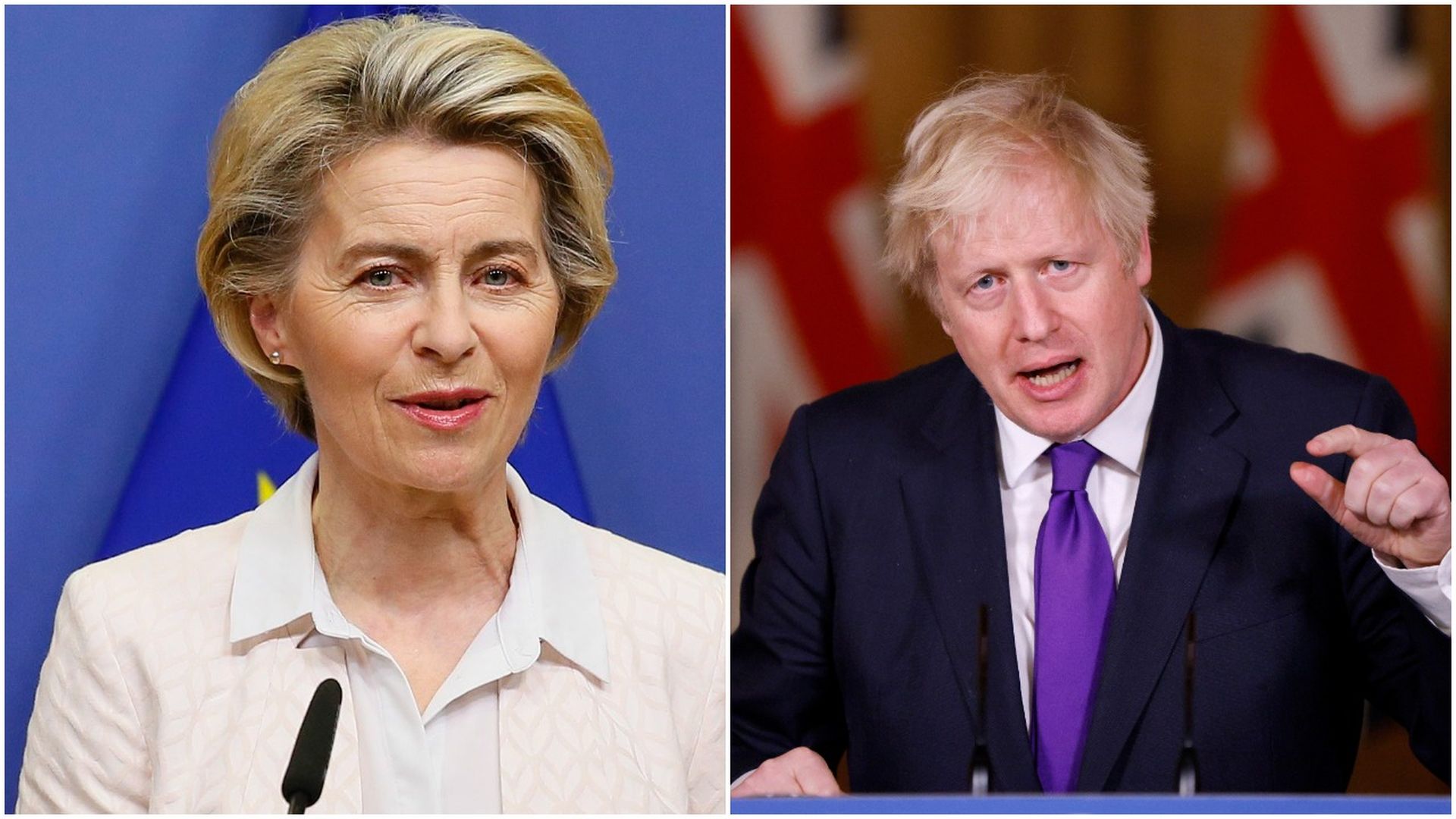Updated Dec 6, 2020 - World
EU-U.K. Brexit negotiations back on as deadline looms
Add Axios as your preferred source to
see more of our stories on Google.

Combination images of European Commission President Ursula von der Leyen and British Prime Minister Boris Johnson. Photo: Julien Warnand/AFP via Getty Images/John Sibley/PA Images via Getty Images
